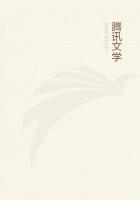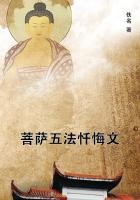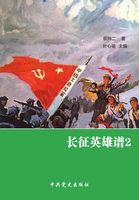I went through New York to Philadelphia, and made a short visit to the latter town. Philadelphia seems to me to have thrown off its Quaker garb, and to present itself to the world in the garments ordinarily assumed by large cities--by which I intend to express my opinion that the Philadelphians are not, in these latter days, any better than their neighbors. I am not sure whether in some respects they may not perhaps be worse. Quakers--Quakers absolutely in the very flesh of close bonnets and brown knee-breeches--are still to be seen there; but they are not numerous, and would not strike the eye if one did not specially look for a Quaker at Philadelphia. It is a large town, with a very large hotel--there are no doubt half a dozen large hotels, but one of them is specially great--with long, straight streets, good shops and markets, and decent, comfortable-looking houses. The houses of Philadelphia generally are not so large as those of other great cities in the States. They are more modest than those of New York, and less commodious than those of Boston. Their most striking appendage is the marble steps at the front doors. Two doors, as a rule, enjoy one set of steps, on the outer edges of which there is generally no parapet or raised curb-stone. This, to my eye, gave the houses an unfinished appearance--as though the marble ran short, and no further expenditure could be made. The frost came when I was there, and then all these steps were covered up in wooden cases.
The City of Philadelphia lies between the two rivers, the Delaware and the Schuylkill. Eight chief streets run from river to river, and twenty-four principal cross-streets bisect the eight at right angles. The cross-streets are all called by their numbers. In the long streets the numbers of the houses are not consecutive, but follow the numbers of the cross-streets; so that a person living on Chestnut Street between Tenth Street and Eleventh Street, and ten doors from Tenth Street, would live at No. 1010. The opposite house would be No. 1011. It thus follows that the number of the house indicates the exact block of houses in which it is situated.
I do not like the right-angled building of these towns, nor do Ilike the sound of Twentieth Street and Thirtieth Street; but I must acknowledge that the arrangement in Philadelphia has its convenience. In New York I found it by no means an easy thing to arrive at the desired locality.
They boast in Philadelphia that they have half a million inhabitants. If this be taken as a true calculation, Philadelphia is in size the fourth city in the world--putting out of the question the cities of China, as to which we have heard so much and believe so little. But in making this calculation the citizens include the population of a district on some sides ten miles distant from Philadelphia. It takes in other towns, connected with it by railway but separated by large spaces of open country.
American cities are very proud of their population; but if they all counted in this way, there would soon be no rural population left at all. There is a very fine bank at Philadelphia, and Philadelphia is a town somewhat celebrated in its banking history.
My remarks here, however, apply simply to the external building, and not to its internal honesty and wisdom, or to its commercial credit.
In Philadelphia also stands the old house of Congress--the house in which the Congress of the United States was held previous to 1800, when the government and the Congress with it were moved to the new City of Washington. I believe, however, that the first Congress, properly so called, was assembled at New York in 1789, the date of the inauguration of the first President. It was, however, here in this building at Philadelphia that the independence of the Union was declared in 1776, and that the Constitution of the United States was framed.
Pennsylvania, with Philadelphia for its capital, was once the leading State of the Union, leading by a long distance. At the end of the last century it beat all the other States in population, but has since been surpassed by New York in all respects--in population, commerce, wealth, and general activity. Of course it is known that Pennsylvania was granted to William Penn, the Quaker, by Charles II. I cannot completely understand what was the meaning of such grants--how far they implied absolute possession in the territory, or how far they confirmed simply the power of settling and governing a colony. In this case a very considerable property was confirmed; as the claim made by Penn's children, after Penn's death, was bought up by the commonwealth of Pennsylvania for 130,000l., which, in those days, was a large price for almost any landed estate on the other side of the Atlantic.
Pennsylvania lies directly on the borders of slave land, being immediately north of Maryland. Mason and Dixon's line, of which we hear so often, and which was first established as the division between slave soil and free soil, runs between Pennsylvania and Maryland. The little State of Delaware, which lies between Maryland and the Atlantic, is also tainted with slavery, but the stain is not heavy nor indelible. In a population of a hundred and twelve thousand, there are not two thousand slaves, and of these the owners generally would willingly rid themselves if they could.
It is, however, a point of honor with these owners, as it is also in Maryland, not to sell their slaves; and a man who cannot sell his slaves must keep them. Were he to enfranchise them and send them about their business, they would come back upon his hands.
Were he to enfranchise them and pay them wages for work, they would get the wages, but he would not get the work. They would get the wages; but at the end of three months they would still fall back upon his hands in debt and distress, looking to him for aid and comfort as a child looks for it. It is not easy to get rid of a slave in a slave State. That question of enfranchising slaves is not one to be very readily solved.















